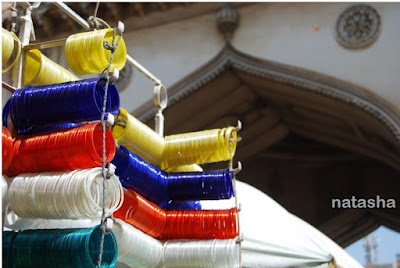In August when I went to a patisserie, they didn’t let me in till I donned a pair of plastic gloves. Today, when I went to the same place, all the did was a thermal check; even the sanitizer dispenser was empty.
We have clearly let down our guard, and that’s scary.
Do I want to go back to the days of paranoia and plastic gloves? Certainly not.
As I had pointed out to the management even then- plastic gloves are counter productive because they lull you into false complacency. You are likely to touch the front of your mask with gloved hands and leave germs behind.
[Plus the unnecessary use of single use plastic that cannot be recycled.]
But what was needed then, and what is still needed today is an understanding of how the virus spreads, so people can guard against it.
And that is something that is sadly missing.
If you are going to wear a mask on your chin, you’d be better off not wearing the mask at all. Masks do not emit a force shield that keeps the virus away.
A mask acts as a physical barrier, and can only work if it covers both the nose and the mouth.
If you are a carrier of the virus, you discharge the viral load through your mouth when you speak, sneeze or sing. Pulling down the mask while speaking to make yourself audible defeats the whole purpose of wearing the mask.
If you are a carrier, the germs would settle on the part of the mask that covers your nose and mouth.
If you, like most people do, keep fiddling with the mask, you get the germs on your hand and leave it behind on the surfaces you touch.
There are even people who pull the mask down, sneeze, and pull it up again. If they paused to think about it, they would know how foolish that is, but none do so. To them, mask wearing is the mandate, and they do it merely because they are required to.
And then there are people, many people, who are so fed up of being cooped up that they have just decided to pretend the virus has gone away, though there is absolutely nothing to suggest that.
What then, is the solution?
Behaviour Change Communication (BCC)
The only proven way of changing behaviour of individuals and communities to bring about positive public and personal health outcomes.
 |
Five Stages of BCC
|
BCC works by raising awareness, creating an enabling environment to adopt new practices, adopting practices and supporting each other to sustain the practices.
In India, BCC has demonstrated positive results in adopting practices to combat waterborne and vector borne diseases.
Ad hoc messaging by the government, especially when it is not backed up by their action, does not serve any purpose. The Corona message you get instead of a ringtone has been unchanged for months, and is easily ignored.
What is needed, instead, is a sustained campaign.
Behaviour change is required because intermittent lockdowns do not serve any purpose, and neither do punitive actions like fining people for not following guidelines.
We need to understand the nature of spread and adopt suitable behaviour to mitigate it.
At this stage, we seem to have given up, which is reflecting in sudden spikes in numbers. We certainly cannot afford a situation similar to the one in Delhi to spread across the country, and neither can be afford another lockdown.
We need to change behaviour patterns now.
If you look at the countries that have fared relatively well in the current pandemic, most of them are countries which were previously hit by the SARS virus, and where people adopted mitigating practices.
The sooner we take this up, the better for us as a nation.












